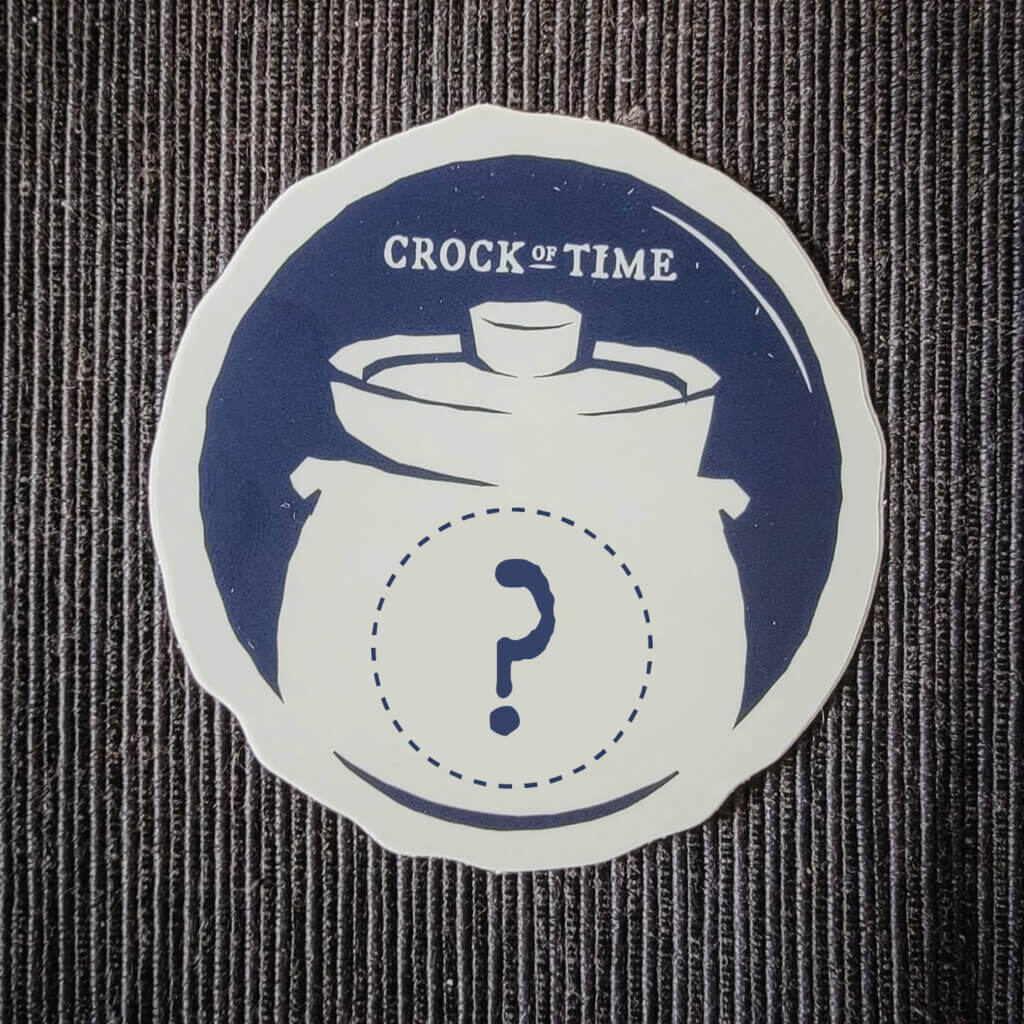Fermentation 2021: Day 3
The final day of the conference was quite a crash-course for me about the current state of the science and industry of fermentation. I have thus far enjoyed home fermentation as a way to understand my food as well as preserve and transform what might otherwise turn into waste, but I’ve otherwise remained skeptical of some of the more radical claims about the health benefits of fermented foods. Some of the presentations today, while not necessarily changing my mind, have allowed me to reframe how I’m considering those claims.
Are Fermented Foods “Probiotic”
Speaker: Dr. Mary Ellen Sanders, PhD, ISAPP Executive Science Officer
The short answer: not necessarily.
Just because something is fermented does not mean it is probiotic. “Probiotics” has a very clear definition:
Live microorganisms that, when administered in adequate amounts, confer a health benefit on the host.
Science
Therefore, there are 3 criteria that must be met for a food to be a probiotic:
- The microorganism(s) must be identified.
- The quantity at time of consumption of these microbes must be known.
- The combination of 2 and 3 must demonstrate a specific, provable health-related benefit.
So you can’t call something probiotic if any of the following are true:
- You don’t know what specific strains of microorganisms are present.
- You don’t know what quantity of microbes is present at the time of consumption.
- You haven’t proven that a specific health benefit results from consumption of the product.
This is tricky because it is likely, almost certain, that lots of fermented food would be considered probiotic if the studies had been done yet, but science requires time and, of course, money. And the standard for evidence is higher than some people (even in large quantities) expressing that some product helped address some specific ailment, because the placebo effect is a real thing! The studies have been done for yogurt because the dairy industry has the ability to fund it, but by comparison the kombucha industry is still relatively small and scrappy. But the term “probiotic” is a powerful buzzword for consumers because of the scientifically documented health benefits, so using the term more broadly waters it down.
Even still, scientists at ISAPP are trying to meet us halfway. They’ve initiated a project to explore if they can review a database of microbes associated with specific foods and compare that with trends in American food consumption and general health trends.
Evidence of Fermented Health Benefits
Speaker: Prof. Paul G. Cotter, Head of Food Bioscience, Teagasc
Ok, we know that there is still work to be done to claim that a fermented food is also probiotic, but what is the evidence that fermented foods are good for you at all? Well, much of this research right now is focusing on the gut microbiome.
It is known that industrialization and urbanization have affects on a population’s gut microbiome. Higher availability of processed, pasteurized foods, overuse of antibiotics, and higher levels of hygene mean that there is less exposure to microbes overall. This also loosely correlates with poor health outcomes.
Fermented foods have a wide range of benefits that aren’t related to specific health claims:
- Source of live, active microbes
- Improves food taste, texture, and digestibility
- Increase concentrations of vitamins and bioactive compounds in food
- Removes or reduces toxins or anti-nutrients in raw foods
- Increased food safety and shelf life
There was some information that went above my head about “Health Associated Gene Clusters” found in fermented foods, but I’m told that this is just scratching the surface, and that this information will be used to select certain foods and associated microbe strains for further study.
One study about kefir did catch my attention, especially since it was used in several talks today. A bunch of mice were fed a high-fat diet and given either milk (control) or various different kefirs, and then certain traits were measured like weight gain and non-HDL cholesterol levels. Interestingly, commercial kefir fared no better than milk, but traditionally fermented, live culture kefir showed improvements both in weight and cholesterol. But the frustrating thing is that not all kefirs are made of the same microbes, and some might not include the microbes that had these effects.
What’s Next in Craft Alcoholic Beverages?
Taking a break from the science, this was a panel of producers and advocates of different types of alcohol, including wine, beer, cider, sake, tequila/mescal, and hard kombucha. The main takeaways for me are that consumers are looking for health-focused, premium, and new experiences. There is a general trend towards what one panelist called “primitive” or unrefined products like doburoku (unfiltered homebrewed sake, see my recent logbook for an example) and unfiltered ciders.
I think consumers are looking for products that are locally sourced and made by humans who care about their product.
Fermented Food & Human Gut Microbiome
Speaker: Hannah Wastyk, Ph.D., CEO of Interface Biosciences
Continuing our journey into the science of fermentation and health, this presentation focused on a specific first-of-its-kind study that linked diet to microbiome changes to immune system response. In short, they tested a diet high in fiber and a diet high in fermented foods to a control through an intervention study, meaning that they took measurements of participants at the start and had them change something about their lifestyle for the length of the study. Participants in the fermented food arm could eat any fermented food from the grocery store and self-report the food, so there was a wide range of products consumed.
They found that the diversity of the microbiome of participants eating fermented foods saw a significant increase, while folks on the fiber diet saw no change. Curiously, a very small percentage of new microbes in the gut were common with those found in fermented foods, overall less than 4%, so the rest either came from elsewhere or were there at undetectable levels prior to the intervention.
Evidence of increased gut microbiome diversity is great, but we’re looking for health outcomes. This study also tested the immune system, and this part gets a little fuzzy for me, but the fermented group showed a significant decrease in markers for inflammation.
The fiber group also had something interesting to say about microbes and health: participants with a more diverse microbiome had better immune system effects vs those with less diverse guts.
What Is or Isn’t a Health Claim?
Speaker: Josephine Wee, Ph.D., Pennsylvania State University
We all know fermented foods have a reputation, but how far can you go on a label? Josephine broke it down for us:
A Health Claim is any claim made on the label or labeling that expressly or by implication
1) characterizes the relationship of any substance to
2) a disease or health-related condition
The Law
There are all sorts of pre-approved health claims that can be put on a label in the US so long as the product includes specific nutrients; you’re probably familiar with the ones about fiber reducing cholesterol and calcium’s effect on bones.
The largest question we are left with is: do fermented foods in general need to make health claims?
The Art of Marketing Science
Oh boy. I was not expecting to be getting out the popcorn during this conference, but the signs were there from the start with previous discussions about the word “probiotic”. Am I surprised that a panel about how we as an industry can better market the science behind fermentation to consumers devolved into another argument about whether kombucha is probiotic? No.
I believe that kombucha is probably probiotic in the narrowly defined sense that it contains specific strains of microbes that can definitely be shown to have specific health benefits. However, believing that is not enough, because we don’t yet have the specific evidence required to make those claims. Folks in the kombucha space specifically but probably in the fermentation space in general want to ride the wave that fermented = healthy, but only the yogurt industry has managed to do that by specifically adding the required strains of bacteria to the yogurt as basically an additive.
Do I want fermented products that add pure cultures after the fact in order to put a big “look at me” sticker on the label? Not really. I’d buy it regardless if I wasn’t making it myself. What I as a home fermentation enthusiast want to know is: are the foods I’m fermenting at home making or at least keeping me healthy? But this was a professional fermentation conference, so the focus is on industry. But I would like to know what collective action for fermentation enthusiasts would look like and if there is enough interest to fund studies about the benefits of making it yourself.
Once again, this is not a comprehensive list of sessions or their contents, but an overview of what I thought might be interesting to other enthusiasts. I do have more involved notes that I might share as-is; let me kn0ow here or in the Discord if you want access to those.

